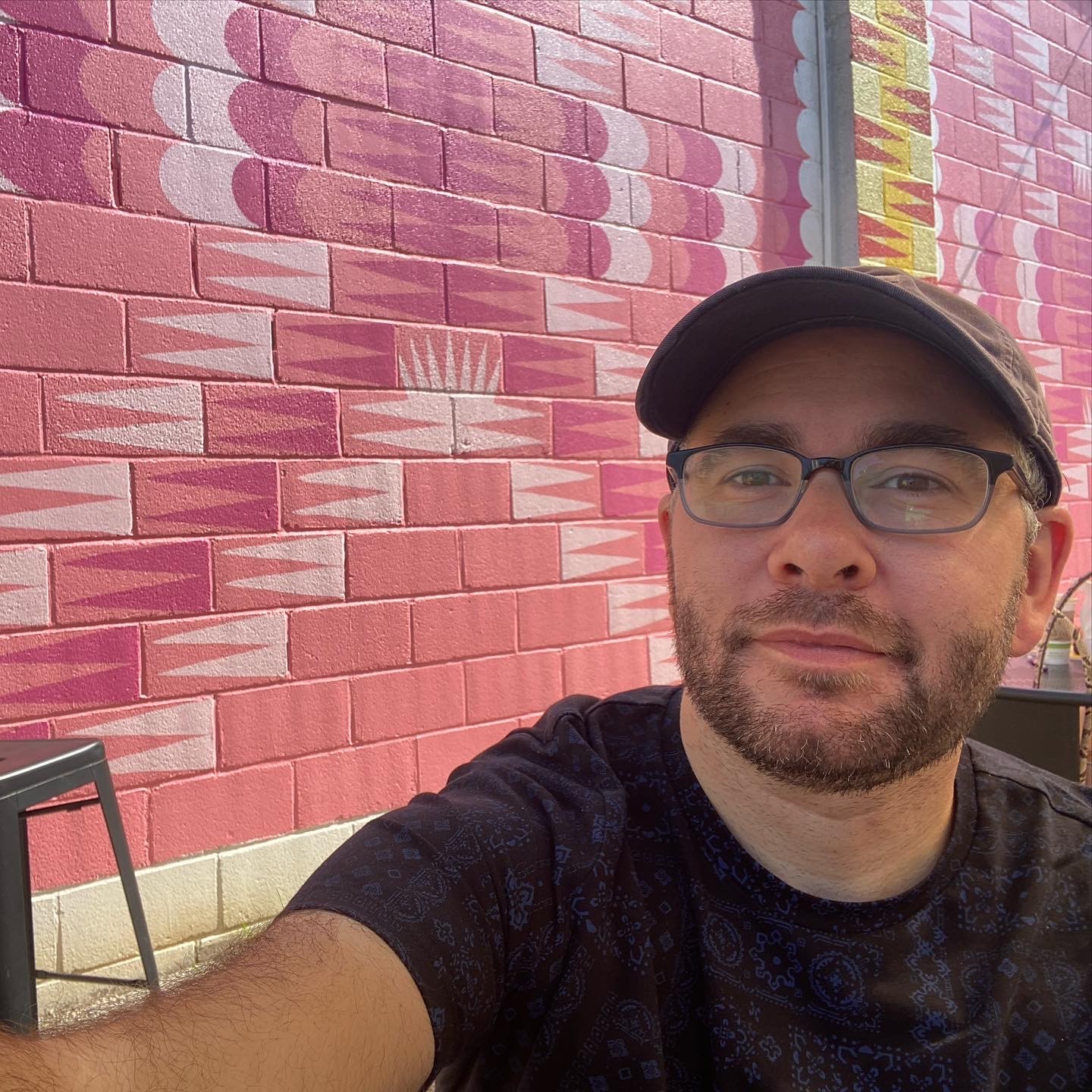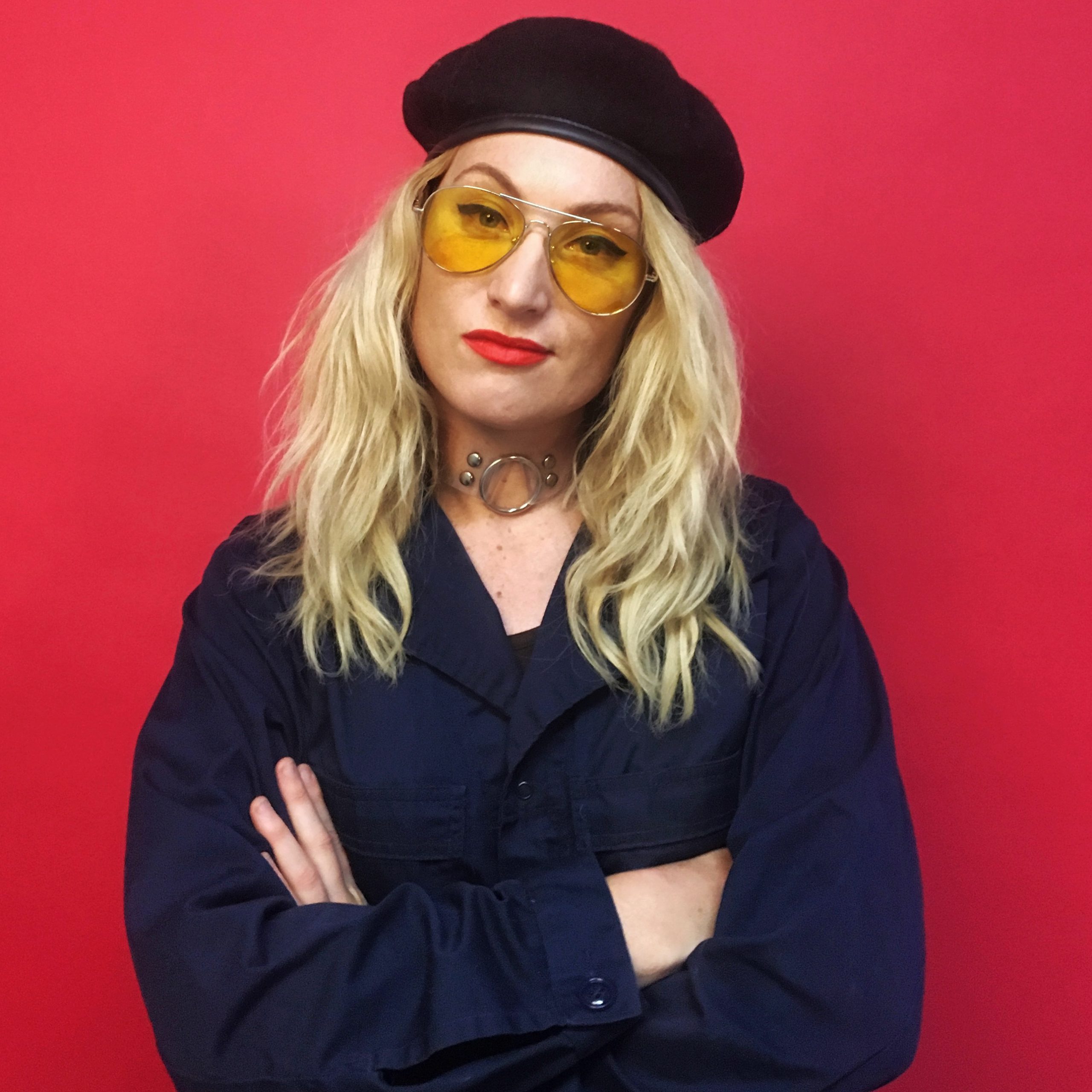Like Salty’s editorial team, our Algorithmic Bias Collective pulls from a range of backgrounds, perspectives and experiences. We coalesce around a vested interest in digital equity, and a commitment to getting us there.
For this second iteration of the algorithmic bias report, we partnered with University of Michigan to add more academic muscle to the team. Just like Salty’s writers and editors, our researchers have experienced the sort of censorship that we explore in this report.
We’re excited to introduce you to the old and new folks behind this work. Meet Salty’s Algorithmic Bias Research Collective, Shakira, Oliver, and Claire.
Name?
Shakira Smith
Pronouns?
She/they.
Tell us what you do with Salty’s Algorithmic Bias Research Collective?
I think of my role in the Collective as a “team lead”… with the primary tasks to vision and direct this project towards its goals in alignment with the Collective’s values. I think of Salty’s research in the first (and soon-to-be second) report as burden-of-proof efforts to document an experience the whole community is having but being gaslit about. Now that this very important foundation has been set, we can ask other questions – What are the consequences of this? How are differing folks affected? How does the community navigate these barriers? What can we build better? The experience/skills I contribute to the Collective are academic research training that provide guidance on how to attempt to answer such questions.
Hometown?
Morgantown, West Virginia
How did you get into this line of work?
Higher education. I just – and I mean like 10 days ago at this writing, yay! – completed a dual-PhD. And if I’m being honest, so much of that work felt like it was removed from or inaccessible to the communities it was professed to benefit. I want to reinvest all this educational capital into projects that are community-/relationship-/liberation- centered. So here I am.
What would you say are some of the biggest problems our community faces when using the Internet today?
Exhaustion. Isolation. Financial restriction.
What impact do you hope the Algorithmic Bias Research Collective has?
I don’t think I know for certain yet, actually. I know what problems I would like for our community to not have to manage (see above), but I hope to see the project shift as the community makes its need known.
Describe the future of the internet in 3 words.
Black. Queer. Free.
What’s your hidden talent?
Making dope af family-style meals out of the random shit left in the pantry and fridge when you’re trying to move out of your apartment.
If you could only visit 3 websites for the rest of your life, what would they be?
I need recommendations for any and all of these – please send suggestions!
– A library site with lots of Indigenous and radical thought and queer/POC representation.
– An ethical porn site with lots of kinky and queer/POC representation.
– A witchy site with lots of astro, tarot, and herbs and queer/POC representation.
What radicalized you?
So much. Growing up ground zero of the opioid epidemic. The financial barriers to farming. The inaccessibility of fresh food. Jail. Psychedelics. Academia. Working in the medical industrial complex. The murder of Philando Castile. Neurodivergence. Being a therapist (especially so). Valuing community in the context of capitalism. The need for rest.
Follow Shakira on Instagram here.
Name?
Oliver Haimson
Pronouns?
he/him
Tell us what you do with Salty’s Algorithmic Bias Research Collective?
I’ve been working with the team conducting research about people’s experiences with online censorship, and how we can influence social media platforms to do better!

Hometown?
I don’t really have one, but I was born in San Francisco.
How did you get into this line of work?
I’ve been doing research about marginalized people’s and communities’ experiences on social media sites, mostly in the context of trans experiences, since about 2013. A lot of this is driven by my own experiences in online trans communities throughout the years. Through my research, I’ve learned a lot about the ways that many online platforms disproportionately keep marginalized folks from being able to express themselves and find community and support. In my current role as an Assistant Professor at University of Michigan, I have been working on making my research as community-driven as possible. So, it’s exciting to get the opportunity to work with Salty, a community that I’ve long admired, on the next phase of this research!
What would you say are some of the biggest problems our community faces when using the Internet today?
I think that there are two major issues, and they are closely related: marginalized people are more likely to have content or accounts removed from online platforms, and at the same time marginalized people are more likely to be harassed and abused on online platforms.
Both of these are related to how platforms moderate content: what they decide to remove, from whom, and how they make these decisions. There is a delicate balance in getting content moderation right, and through our research, we are learning how sites can do better and what they must consider so that marginalized people (e.g., BIPOC, trans and nonbinary people, queer people, women) can have the same opportunities as everyone else to find community and express themselves online.
What impact do you hope the Algorithmic Bias Research Collective has?
I hope that we can lift up the voices of women, trans and nonbinary people, BIPOC, and queer people to influence social media platforms to make design and policy decisions that improve marginalized people’s experiences online!
Describe the future of the internet in 3 words.
equitable, transparent, empowering (I hope!)
What’s your hidden talent?
karaoke jockey
If you could only visit 3 websites for the rest of your life, what would they be?
saltyworld.net of course!
TikTok, both for the cute animals and for the LGBTQ+ communities
random.org
Follow Oliver on Twitter here.
Name?
Claire F
Pronouns?
She / Her. Or They / Them depending on the day, or month
Tell us what you do with Salty’s Algorithmic Bias Research Collective?
I’m part project manager, part marketer, part strategist, part editor – I help keep the ball rolling!

Hometown?
Australia
How did you get into this line of work?
After years of frustrations trying to scale Salty, we were running into roadblock after roadblock – from being kicked off email service providers (talking about you- mailchimp), being rejected fromGoogle Adsense (so we cannot monetize our website) and being banned from advertising on Instagram, I saw first hand that voices like those we amplify at Salty are being systematically censored and quashed from the internet. I wrote an essay called “The Patriarchy is in the Algorithm” outlining our experiences, and after a very public run in with Instagram deduced that the tech industry cares very little about our stories – but they usually will listen to data. So I decided to spearhead some research – thankfully the Salty community are as passionate about this cause as we are.
What impact do you hope the Algorithmic Bias Research Collective has?
I created the Algorithmic Bias Research Collective to put some hard data behind the issues that Salty and our community are experiencing, and ultimately, hopefully, influence some changes in the way that the internet is being built.
What would you say are some of the biggest problems our community faces when using the Internet today?
First and foremost, safety. The internet is mostly unsafe for anyone who isn’t a white cis man.
Describe the future of the internet in 3 words.
Fractured, unequal, dystopian (sorry ya’ll, I’m not feeling hopeful.)
What’s your hidden talent?
Packing up camping tents and fitting them back into their tiny little bags.
If you could only visit 3 websites for the rest of your life, what would they be?
Salty, Salty, Salty

